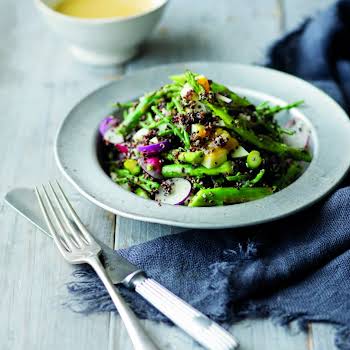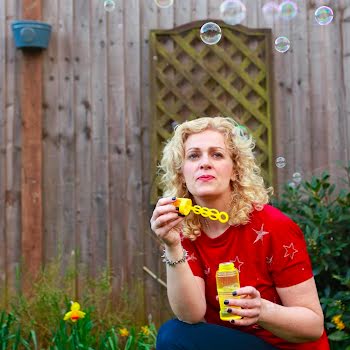
By Jennifer McShane
05th Sep 2020
05th Sep 2020
Many women dread the time of the month that can come with bloating, sugar cravings, breast tenderness, cramping, sleep disturbances, and general irritability, otherwise known as Premenstrual Syndrome (PMS). This occurs when there’s a hormonal imbalance as a result of an increase in estrogen levels and a decrease in progesterone during what’s known as the ‘luteal phase’ of the menstrual cycle – the second half of your cycle, from ovulation until your next period. There can be up to 150 additional symptoms of PMS and a more severe variation of this, Premenstrual Dysphoric Disorder (PMDD) which often, women can’t control
Symptoms of PMS can be propelled or made worse due to lifestyle choices, and while we would always encourage you to see your GP (when it’s safe to do so) if these are causing you distress, there are some natural things you can try to help manage or lessen the milder ones:
What you eat is important
Food is one of the most effective ways to balance your hormones, as ur body responds to food so quickly. In a cross-sectional study, researchers at UC Davis found an association between PMS symptoms and the presence of certain biomarkers for inflammation, as measured by a high-sensitivity C-reactive protein. After testing 3,202 women from five ethnic groups, the study found that people with higher CRP were more likely to experience certain PMS symptoms including bloating, mood changes or cramps.
Eating an anti-inflammatory diet is helpful because it reduces the activity of aromatase, the enzyme that converts testosterone to estrogen which can cause symptoms of PMS. Foods such as flax seeds, white button mushrooms and goji berries, are all recommended as well as having foods which contain protein, healthy fat and fibre with every meal as these will help to balance your blood sugar and hormones.
Managing stress makes a big difference
Tracking your cycle is always recommended because then you’re prepared for hormonal changes and can plan activities to help manage any stress you’re feeling. Your body can’t always be ‘on’ and filled with energy; it will take a drop, particularly when you’re on your period so take the time to do relaxing activities such as warm baths or yoga. This will ease your stress and hopefully keep your hormones from going into overdrive.
Exercise and sufficient sleep is vital
Exercise helps to balance hormones and is an effective way to reduce PMS symptoms. Even short bouts of exercise that gets you moving – say 30 minutes, four or five times a week – is very helpful as actually overstimulates cortisol release and destabilises our hormones. On the other side of the spectrum, getting the right amount of sleep – eight hours per night – is equally important to restore you and keep your hormones balanced.
Know what’s normal for you
If you’re dealing with a constant barrage of these symptoms outside of your cycle and what you deem to be normal, it’s important to go and get checked. Anything that doesn’t feel right warrants the attention of a health professional, just to be extra sure there are no underlying issues. Equally important is that you don’t simply have to “tolerate” your symptoms. There’s medicinal and varying remedies (asides from the above) and different options you can avail of to help you and your body feel it’s very best. The worst thing you can do is suffer in silence, so don’t do it.
Main photograph: Unsplash
Read more: Perimenopause: The symptoms you may not know about
Read more: The hidden symptom of coronavirus that nobody’s talking about
Read more: Feeling tense stuck indoors? Doing these 4 things could help ease your stress levels























